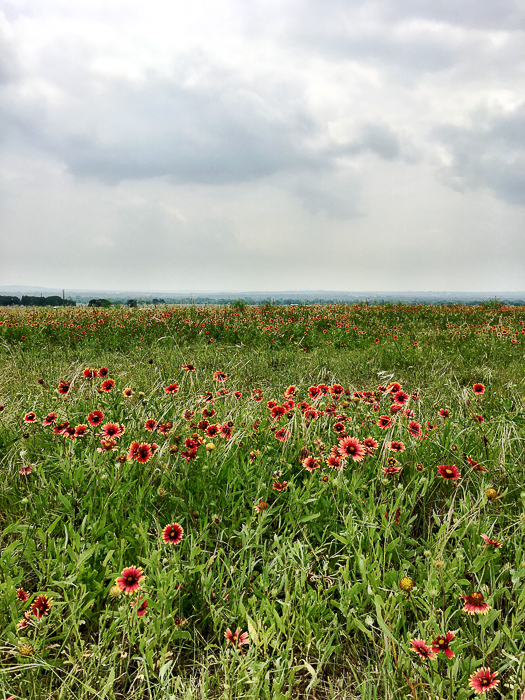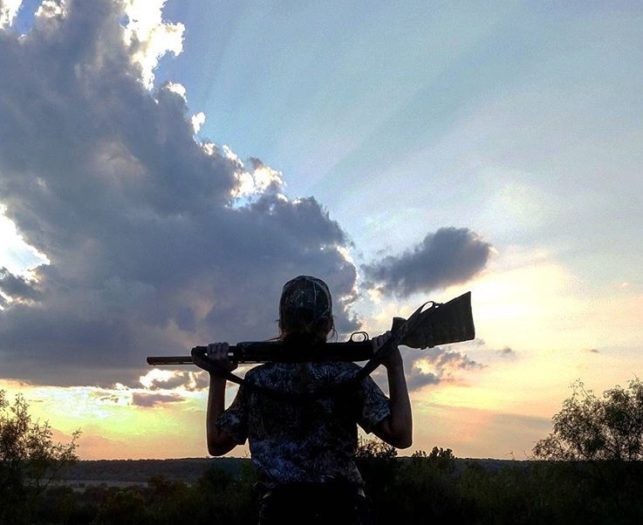
How to Tell Your Friends Why You Hunt
When someone finds out I hunt, the first question I am usually asked is, “You hunt?! But you wear make up!” The second question I get asked is, “What do you tell people who are against hunting?”
I know that if someone brings the debate up, deep down we are just two people who love wildlife and are trying to protect it. I would take someone with that attitude over someone who doesn’t care about nature any day! Thankfully, arguments against hunting are often rooted in simple misconceptions which can be easily dispelled.
It helps to know what hunting opponents often say:
- Guns are dangerous and hunters are careless with them, endangering people and wildlife.
- All animals are legal to be hunted.
- Hunters leave what they kill in the field to waste.
- Innocent animals are killed by mistake.
- Animals get wounded and die slow, painful deaths.
- Hunters will kill too many animals and they will become endangered.
- Hunters only care about putting antlers on a wall—they don’t care that a life was taken.
Our Perspective
Here are some ideas that can help you respond…
- All hunters are required by law to take hunter education, where they learn about shot placement and how to prevent animals from being wounded. Here they also learn gun safety practices, bag limits and hunting seasons, and other rules which keep people and animals safe afield.
- We eat what we kill. In fact, it is illegal in Texas to shoot a game animal and leave it lying in the field. Just see the wild game recipes on my blog as well as my friend Noel’s My Wild Kitchen blog as proof that we don’t let it go to waste!
Venison Ossobuco with saffron rice
- Not every animal is legal to shoot. In fact, many are illegal to shoot, and you will receive heavy fines and penalties for killing animals not on the list of approved game animals. Texas Parks and Wildlife Department counts wildlife each year and determines how many we should be allowed to hunt so numbers are sustained. We are also restricted as to when we can hunt them. For example, most game animals can’t be hunted during the season they are giving birth and rearing young. All of these rules keep us from overdrawing our resources.
- The government even has its own police force, known as game wardens, to implement game laws. North America’s wildlife have rebounded over the last century after the establishment of game laws and enforcement.
- We only shoot what we have a clear shot on and can properly identify, so animals are not mistakenly shot. This is the expectation and standard within our hunting culture. It isn’t “cool” in the hunting world to take the wrong animal—it is actually embarrassing! As a result, accidental deaths of non game animals are far less common than one may think.
- We care and have utmost respect for any animal’s life taken from the field. Electing to hunt comes with a sense of responsibility—ultimately you are making a choice about the land for better or worse. Hunters are afield more than the average person and would be the first people affected if a wildlife resource was depleted. Therefore, we pay an extra tax on our ammunition and sporting goods to fund protection and improvement of wildlife habitat nationwide—on top of improving wildlife habitat on our own land and financially supporting charities which study and protect wildlife, like Texas Wildlife Association, Wildlife Habitat Federation, Borderlands Research Institute, and many others. Real projects like the Pronghorn antelope conservation efforts in Texas are funded through dollars raised by hunters.
- In poor parts of the world like Africa, without better options, people can be forced to make a living by poaching ivory or overgrazing cattle on land that was once vibrant wildlife habitat. On the other hand, when hunting becomes profitable, good wildlife populations mean good business and they are given an option to conserve. Many African countries don’t have their own game wardens, so protection of wildlife is left in the hands of land owners.
- Last but not least, venison and wild game is grass fed, free range, organic, and farm to table. Also, fun fact, today we have more deer in North America than in any time in our continent’s history.
Are there many more points in this argument? Sure. But this is what I say, because it responds to the criticism I hear most often. Having this chat with inquisitive friends is nothing to be afraid of—I’ve found that people just want to understand, not argue. And trust me, there is no way to change people who just want to argue so don’t waste your time!
May the force be with you ladies!
Other Posts You Might Enjoy










9 Comments
Noel
Very well said, Whitney! Hunting has be a huge part of my family heritage, so much so that we rarely buy meat at the grocery store. As a former agricultural science teacher, I see that our society is too far removed from where our food comes from, whether it’s beef, chicken, or venison, so society judges what it doesn’t understand. Thank you for taking the route of education.
Whitney
Amen!
Jill
Love this article!
Whitney
Thanks Jill!
Donna
I’m not against hunting when it comes to putting food on the table. So even though I hold wildlife dear to my heart, I also know the importance of eating and I like venison with my pancakes. My question to you is, what about coyotes? I love coyotes and I like their family orientation with the pack. What is your perception on the many hunters who pledge to shoot any coyote they come across? Maybe there are so many deer because so many coyotes are losing their lives?? I am against killing coyotes… especially shooting anyone that is seen.. to me, that’s just wrong. They need to eat too.
Whitney
Hi Donna, Yes — I would agree with you. That is a very old fashioned way of thinking I hope gets phased out as more landowners begin to think about the land as a whole–not choosing one species over another. Granted, some land owners who raise livestock believe coyotes are detrimental, and I can’t argue with them when their livelihood depends on it and the rest of us need the beef, lamb, goat, and other foods they produce. However for the rest of the land owners out there, I hope they can have an attitude shift. Unfortunately coyotes eat big trophy deer but at the same time, healthy populations of all wildlife foster healthy habitat, which can also be good for growing big antlers, so it is a balance and education is a huge component of the solution.
Rita Schimpff
Great article! I have found like you that most people who question hunting are pleasantly surprised when given straight forward facts. And I also maintain my mantra ‘Bring The Wild Inside’, feathers, antlers, pelt & horns are a way to further honor our take and enjoy natures beauty in our decor!
Whitney
I definitely support that, especially in the creative way you do it with Heritage Game Mounts, Rita!
Jenice Benedict
Excellent post and well written, Whit. I wish everyone could / would read this post and get educated!